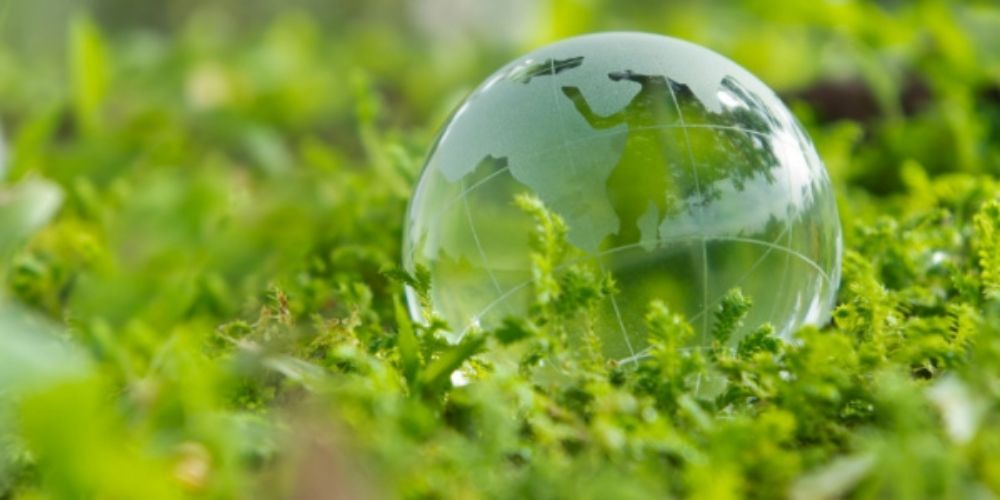Supporting Singapore’s Push for Sustainability

At the recent Budget debate, Trade and Industry Minister Gan Kim Yong emphasised how sustainability would be a key priority for Singapore going forward. He outlined a holistic approach to building a sustainable economy and living environment for Singapore, as well as international collaborations to address global environmental challenges.
A*STAR’s Chief Sustainability Officer (CSO), Professor Yeoh Lean Weng, shares how the agency will be supporting Singapore’s sustainability drive alongside its public and private partners.
.jpg?sfvrsn=488ce73e_2)
1) What are some of your key priorities as A*STAR’s CSO?
Over the years, A*STAR has developed many excellent research capabilities that are relevant and important to national initiatives like the Singapore Green Plan and Zero Waste Masterplan. Therefore, one key priority for me is to bring together these pockets of strengths within A*STAR, and partner with institutes of higher learning (IHLs), public sector agencies and industry partners to develop greater synergies in achieving the national targets set. As CSO, I will be focusing on developing and convening research capabilities at A*STAR’s new Institute of Sustainability for Chemicals, Energy and Environment (ISCE2). As its name suggests, the aim of the research institute is to boost the sustainability of chemicals and energy production, and the environment to meet national goals.
2) Could you elaborate on the role you see A*STAR playing in Singapore’s larger sustainability strategy?
Technological developments in sustainability require public-private-partnerships and large-scale infrastructure and equipment for test-bedding. In driving research to fulfil the economic agenda of the Ministry of Trade and Industry, A*STAR taps on its partnerships with industry sectors to convert novel technologies into application-ready innovations for commercialisation.
For example, A*STAR, the Singapore Economic Development Board (EDB) and JTC are currently partnering 13 ecosystem partners including energy and chemicals (E&C) companies, technology adopters, solution providers and IHLs to study and plan for the development of a modular Carbon Capture and Utilisation Translational Testbed (CCUTT). It will be housed on Jurong Island, and aims to accelerate industry adoption of emerging carbon capture and utilisation technologies as part of Jurong Island’s transformation into a sustainable E&C park.
A*STAR’s public sector key partners in advancing Singapore’s sustainability milestones include the Energy Market Authority (EMA), Housing Development Board (HDB), Land Transport Authority (LTA), Ministry of National Development (MND), Ministry of Sustainability and the Environment (MSE), National Climate Change Secretariat (NCCS), National Environment Agency (NEA), National Research Foundation (NRF), and Public Utilities Board (PUB). We work closely with them as well as industry partners in the private sector on this shared journey towards Singapore’s sustainability goals.
3) What are some of A*STAR’s latest industry collaborations that are focused on sustainability?
ISCE2 signed a Memorandum of Understanding with IHI, a Japanese heavy industry manufacturer, on 10 March 2022 to set up a joint centre for R&D focused on sustainability. This was the fruit of a collaboration between the two which saw the development of a catalytic conversion unit of CO2 to methane.
A*STAR has also worked with NTU on cool coatings which can reduce roof surface temperatures in Singapore by up to 20°C and ambient temperature by up to 2°C. These coatings have been tested on public housing and JTC buildings, and will be applied as part of the HDB’s 10-year Masterplan.
Currently, A*STAR is also working on creating “alternative sand” from CO2 for construction usage and the development of circular and green materials ranging from sustainable packaging to recycling plastics right down to the polymer level.
4) Why are multi-disciplinary R&D and collaboration important in the development of sustainability-related tech?
The nature of sustainability is complex and cannot be resolved with individual scientific disciplines. The principles of chemistry, materials science, engineering, biotechnology sciences, microelectronics, modelling and simulation, automation and so on, must be synergised for the development of practical solutions. Singapore’s robust research community has great advantage in this area, as we have a broad range of partnerships across different scientific disciplines in A*STAR, IHLs and industry R&D centres.
For example, A*STAR’s ISCE2, Institute of High Performance Computing (IHPC), and Singapore Institute of Manufacturing Technology (SIMTech) are developing a streamlined process to produce sustainable aviation fuel directly from CO2, with the aim of contributing to the decarbonisation of the aviation industry. This is a truly multidisciplinary effort – researchers at ISCE2 developed the catalyst, IHPC provided the machine learning capabilities to speed up the catalyst development, and the life cycle assessment and life cycle cost analysis were done by both SIMTech and ISCE2. Industry players will be brought into the picture when the team moves into scaling up the technology for industrial use.
5) At the end of the day, how can A*STAR’s support for Singapore’s sustainability initiatives help boost the economy?
By addressing national initiatives in sustainability as well as the impact of climate change, we can also contribute to the green economy, growth of new industries and creation of new jobs. Examples of these include companies using CO2 to produce fuels, chemicals and construction materials, specialty chemicals companies manufacturing biodegradable and circular materials for consumer care products, and pharma companies leveraging on green processes to reduce their environmental footprint while producing vital medicines for patients.
A*STAR celebrates International Women's Day

From groundbreaking discoveries to cutting-edge research, our researchers are empowering the next generation of female science, technology, engineering and mathematics (STEM) leaders.
Get inspired by our #WomeninSTEM
